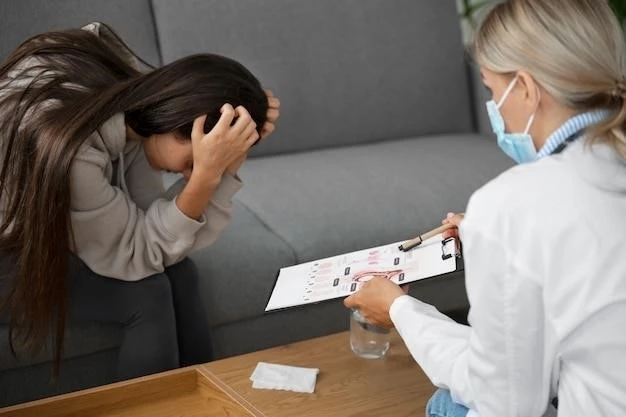Symptoms of Acute Anxiety
Acute anxiety may manifest through physical and emotional signs.
Physical Symptoms
Physical symptoms of acute anxiety include rapid heartbeat, sweating, trembling, shortness of breath, dizziness, nausea, and muscle tension.
Emotional Symptoms
Emotional symptoms linked to acute anxiety consist of feelings of fear, restlessness, irritability, trouble concentrating, insomnia, and a sense of impending doom or danger.
Causes of Acute Anxiety
Various factors contribute to the onset of acute anxiety.
Genetic Factors
Genetic predisposition can play a role in the development of acute anxiety disorders, as certain genes can influence a person’s susceptibility to experiencing intense anxiety reactions.
Environmental Triggers
Environmental factors like stress, traumatic events, excessive work pressure, family conflicts, and major life changes can act as triggers for acute anxiety episodes in susceptible individuals.
Treatment Options for Acute Anxiety
Several approaches can help manage acute anxiety effectively.
Therapy
Therapy, such as cognitive-behavioral therapy (CBT) or exposure therapy, is a vital treatment option for acute anxiety, helping individuals identify triggers and develop coping strategies.
Medication
Medication like anti-anxiety drugs or antidepressants may be prescribed to manage acute anxiety symptoms when therapy alone is not sufficient in providing relief and stabilization for the individual.
Coping Strategies for Acute Anxiety
Implementing coping strategies can help manage acute anxiety.
Deep Breathing Exercises
Practicing deep breathing exercises can help reduce anxiety by calming the nervous system and promoting relaxation, offering a simple and effective method to manage acute anxiety symptoms.
Regular Exercise
Engaging in regular physical activity can help alleviate acute anxiety symptoms by reducing stress levels, boosting mood through the release of endorphins, and promoting overall well-being and relaxation.
Difference Between Acute Anxiety and Chronic Anxiety
Understanding the disparities between acute and chronic anxiety.
Duration
Acute anxiety is short-lived and often triggered by a specific stressor, while chronic anxiety persists over a longer period, impacting daily life consistently without a clear trigger.
Symptoms
Acute anxiety symptoms arise suddenly and intensely in response to a specific trigger, whereas chronic anxiety symptoms persist over time, causing ongoing stress and interference with daily functioning.

Impact of Acute Anxiety on Daily Life
How acute anxiety can affect your ability to function daily.
Work and School Performance
Acute anxiety can impair concentration, productivity, and relationships in work and school settings, leading to decreased performance and increased absenteeism if left unaddressed.
Interpersonal Relationships
Acute anxiety can strain relationships due to emotional fluctuations, avoidance behaviors, and difficulty in communication, affecting interactions with family, friends, and colleagues.
Seeking Help for Acute Anxiety
Ways to reach out and get support for acute anxiety issues.
Professional Help
Seeking assistance from mental health professionals like therapists or counselors can provide guidance, therapy, and coping strategies to effectively manage acute anxiety symptoms and improve overall well-being.
Support Groups
Joining support groups can offer a sense of community, shared experiences, and emotional support for individuals dealing with acute anxiety, fostering understanding, empathy, and coping mechanisms in a supportive environment.
Prevention of Acute Anxiety
Tips and practices to help reduce the risk of acute anxiety.
Stress Management
Implementing stress management techniques like mindfulness, time management, and prioritization can help reduce triggers and build resilience against acute anxiety episodes, enhancing overall well-being and mental health.
Self-Care Practices
Incorporating self-care practices like maintaining a balanced diet, getting adequate sleep, staying active, and engaging in hobbies can nurture mental wellness and resilience against acute anxiety, promoting a healthier lifestyle overall.
